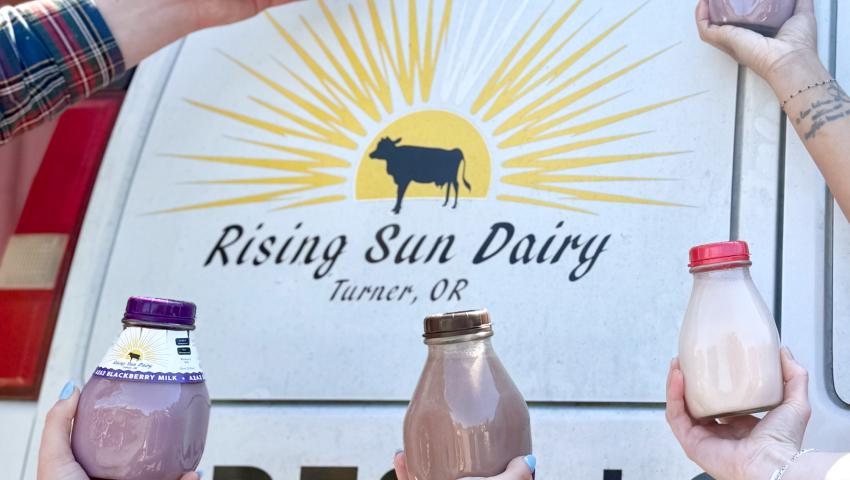
Expanding Dairy Systems: Oregon Field Study Check out this article for some helpful marketing tips!
In April, Camille Stevens visited Oregon with a few members of the Southeast Dairy Business Innovative Initiative team. While in Oregon, she attended the Oregon Dairy Industries conference and visited different farms to learn about the market opportunities and challenges they face. One of the main takeaways from the ODI conference was the idea of promoting the health and wellness of dairy products.
Today's consumers are beginning to shift to a more nutrition-focused ideology when it comes to their food purchases. As she learned from her time in California, consumers are seeking real, minimally processed foods for better nutrition and transparency. Dairy can fit this demand perfectly by offering natural, nutrient-rich options like milk, yogurt, and cheese that provide essential proteins, vitamins, and minerals without unnecessary additives. Consumers are turning back to real foods, and dairy is in a great position to meet those demands.
Dairy has been a long dietary staple. With shifting public perception, misinformation, and the ever-evolving dietary trends, it is very important to highlight dairy’s science-backed nutritional value. Some ways our Kentucky producers can do this are by talking about the nutrient density in dairy products, helping counter misinformation, and utilizing wellness trends in their marketing.
Nutrient Density
We know that dairy products like milk, yogurt, and cheese are rich in essential nutrients. Such as calcium, vitamin D, potassium, high-quality protein, and B vitamins. These nutrients help support bone health, muscle function, and overall well-being. Making sure we tell our consumers this information will help them understand the importance of dairy in a well-balanced diet.
Countering Misinformation
In recent years, dairy has faced growing skepticism fueled by social media trends, celebrity endorsements of dairy alternatives, and widespread myths that lack scientific backing. Misinformation can contribute to confusion, unnecessary dietary restrictions, and missed nutritional benefits. Making sure we are using credible sources, helping engage on social media, while also offering transparency on how products are produced, processed, and tested, can help rebuild that trust.
Marketing with Wellness Trends
Camille learned this in California, but it was evident as well in her trip to Oregon. We need to tap into current trends to promote our products. High-protein, clean-label, versatile foods can help position dairy products as the perfect health-conscious choice. Focusing on dairy’s health and wellness benefits, producers, marketers, and educators can reshape the narrative around dairy and ensure it remains a trusted and valued part of the consumer's diet.